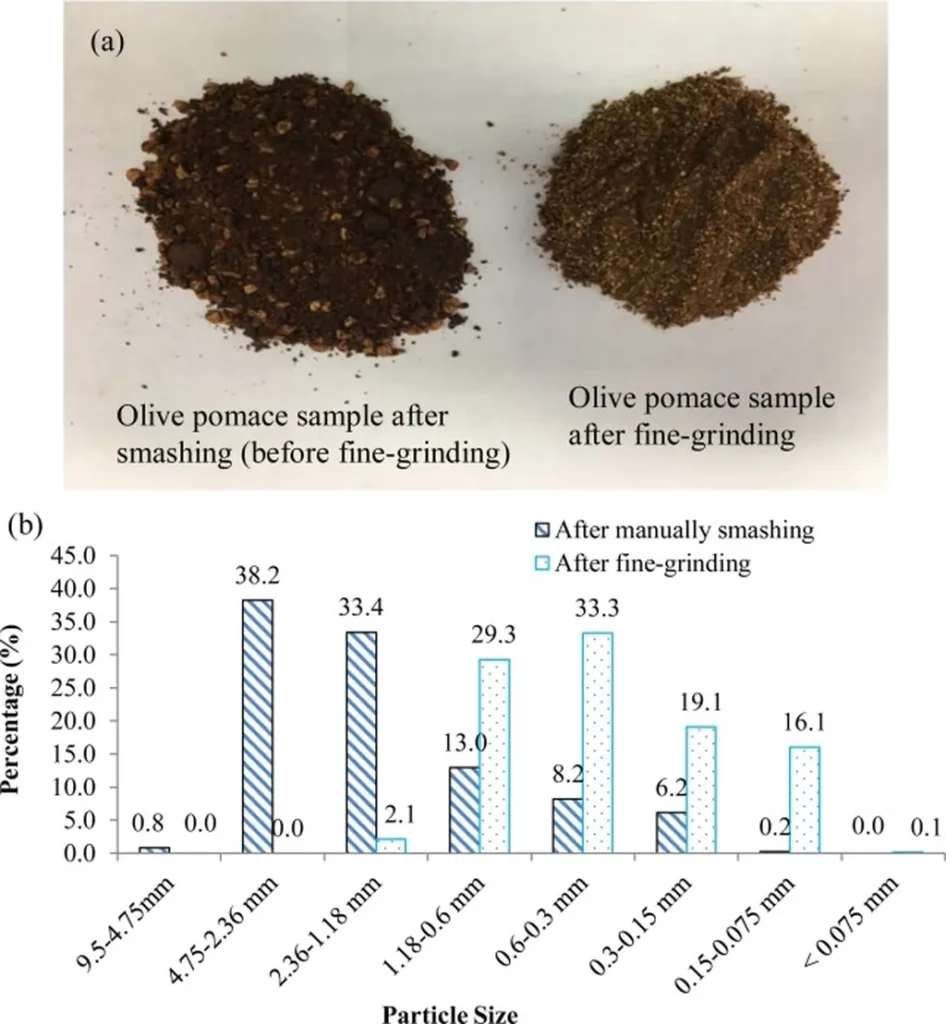In the quest for sustainable and durable infrastructure, a recent study published in the journal *Sustainability Science and Technology* (translated to English as “Sustainability Science and Technology”) is making waves. The research, led by Utkarsha Bhetuwal from the Department of Civil and Environmental Engineering at Lamar University, explores the potential of using olive and grape pomaces—waste by-products from olive oil extraction and wine-making—as antioxidants in asphalt pavements. This innovative approach not only addresses environmental concerns but also promises significant commercial impacts for the energy and construction sectors.
Olive and grape pomaces are typically disposed of directly, leading to environmental issues such as soil and groundwater contamination due to their acidity and high organic content. However, previous studies have shown that incorporating these materials into asphalt pavements can enhance durability. “The antioxidation behavior of olive and grape pomaces can significantly improve the lifespan of asphalt pavements,” Bhetuwal explains. “This not only reduces maintenance costs but also contributes to more sustainable construction practices.”
The study reviews existing Life Cycle Assessment (LCA) and Techno-Economic Analysis (TEA) methodologies applied to pavement technologies. LCA evaluates the environmental impacts of a product or process throughout its life cycle, while TEA assesses the economic feasibility. By analyzing these methodologies, Bhetuwal aims to provide a framework for future studies on the use of olive and grape pomaces in asphalt pavements.
“Our review highlights the methodologies used in different phases of pavement LCA and TEA, offering a comprehensive guide for researchers and practitioners,” Bhetuwal states. “This framework can help in understanding the potential environmental and cost benefits of utilizing these agricultural waste products in infrastructure.”
The research also identifies practical challenges, such as material availability, odor, and construction and transportation issues. However, the potential benefits are substantial. By promoting the reuse of agricultural waste, this study supports several United Nations Sustainable Development Goals, including Industry, Innovation and Infrastructure (SDG 9), Sustainable Cities and Communities (SDG 11), Responsible Consumption and Production (SDG 12), and Climate Action (SDG 13).
The commercial implications for the energy sector are significant. As the demand for sustainable and durable infrastructure grows, the use of olive and grape pomaces in asphalt pavements could become a viable solution. This innovation not only reduces waste but also enhances the performance of pavements, leading to long-term cost savings and environmental benefits.
In conclusion, Bhetuwal’s research provides a roadmap for future studies on the use of antioxidant-rich olive and grape pomaces in asphalt pavements. By addressing both environmental and economic aspects, this study paves the way for more sustainable and innovative construction practices. As the world continues to seek solutions to pressing environmental challenges, this research offers a promising avenue for the energy and construction sectors to explore.

